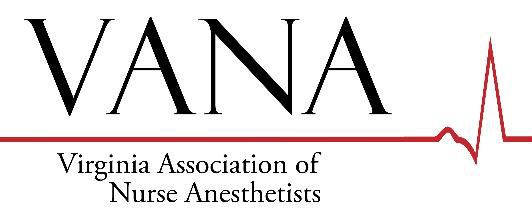Oral Cancer Awareness Month
Oral Cancer Awareness Month: CRNAs Provide Safe Anesthesia Care During Treatments for Oral Cancer
By Cathy A. Harrison, DNAP, CRNA
During April, Oral Cancer Awareness Month, the Virginia Association of Nurse Anesthesiologists reminds the public that the best prevention of oral health is early detection, but it’s also important to ensure that patients have access to safe anesthesia care when treatments including surgery are used for oral cancer. As the holder of a doctorate degree in Nurse Anesthesia Practice, I am proud to count myself among the Certified Registered Nurse Anesthetists (CRNAs) in Virginia who provide safe and cost-effective anesthesia care to oral cancer patients.
Proactive oral health habits such as maintaining regular check-ups with your dentist or healthcare provider can detect oral cancer at its earliest stages. Once diagnosed, surgery is a common treatment for oral cancer, depending upon where the tumor is, its size and if it has spread. Sometimes reconstructive surgery is needed, too. This is done to repair the damage caused by taking out the tumor. It also can help restore the way your body works and looks.
I have cared for patients in several dental offices in Central Virginia for 23 years and know the importance of yearly dental exams and maintaining optimal dental health. By providing moderate sedation to dental patients in an office setting, procedures can be performed with relative ease and comfort to the patients. Early detection and treatment are key factors in successful treatment.
According to the American Cancer Society, approximately 54,540 people in the U.S. will be diagnosed with oral or oropharyngeal cancer (cancer that develops in the back of the throat) in 2023, and about 11,580 people will die from these cancers this year. Together, these two cancers are the sixth most common type of malignancy worldwide.
Sedation for any oral surgery increases the complexity of care. It’s extremely important to have sedation and anesthesia provided by an anesthesia professional, such as a CRNA, who is focused only on patient safety, monitoring, and vigilance.
CRNAs are highly educated and trained anesthesia experts. They provide 50 million anesthetics per year in the United States, working in every setting in which anesthesia is delivered. CRNAs have the education and experience to react quickly to emergency situations in dental care settings, possessing the expertise to administer the anesthesia and intervene as necessary if critical events occur during the procedure.
Patients who require sedation or anesthesia for oral cancer treatments can count on a CRNA to stay with them throughout their procedure, advocate on their behalf, and provide high-quality, patient-centered care. CRNAs are proud to serve patients in communities throughout our state, working with oral surgeons to provide important access to safe, cost-effective dental services.
As members of one of America’s most trusted professions, CRNAs have always served on the front lines of patient care, and we continue to answer the call to help keep patients healthy and safe. Please join me in recognizing the work of CRNAs during Oral Cancer Awareness Month.
Cathy Harrison DNAP, CRNA, has practiced dental anesthesia for more than 20 years and lives in Midlothian, VA.

